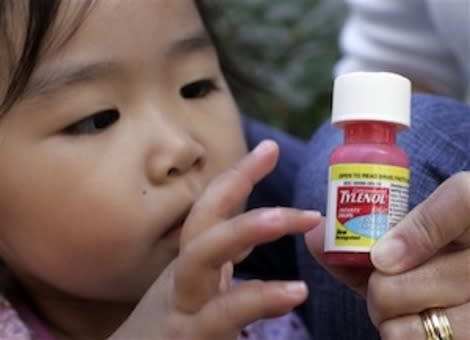Child’s Overdose Death Spotlights Over the Counter Medicine Risks

The death of five-year-old Kimber Michelle Brown in February highlights the potential dangers of over the counter (OTC) drugs for children. The autopsy report, which was released Monday, April 15, says the little girl died of an overdose of cold medications. She had twice the level of dextromethorphan, a cough syrup ingredient, and elevated levels of another medication, Cetirizine, in her system. Her grandmother administered the medicine.
A double dose of cough syrup is only the difference between grabbing a teaspoon and a soupspoon out of the silverware drawer. The Centers for Disease Control estimate that 70,000 kids end up in the hospital each year poisoned by common household medicines.
Diane Murphy, M.D., director of the Food and Drug Administration's Office of Pediatric Therapeutics offers these basic guidelines for dispensing medicine to children:
Just because a medicine is labeled for children, doesn't mean it is intended for any age. Read the package closely.
Some drugs, such as aspirin, can be fatal for children with chickenpox or flu-like symptoms. Speak to your pediatrician before administering any medication.
Use OTC drugs only as directed. Do not give a child more than the recommended amount for their age and weight.
Use the measuring device provided with the specific medicine. Do not use spoons or devices provided with other medications.
Do not give OTC drugs or cold medicines to children under two years of age unless directed by your doctor.
When in doubt, avoid medicating your child and call your doctor. OTC medicines treat the symptoms, not the cause of a disease, so the risks can outweigh the benefits.
For more information, visit the FDA's consumer website.
